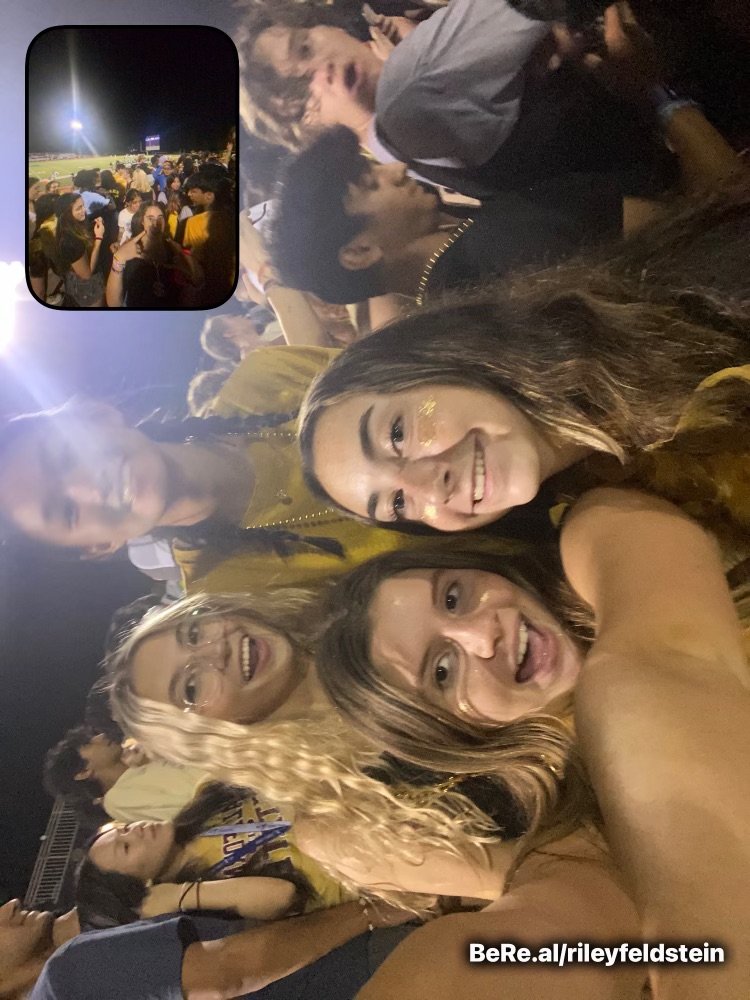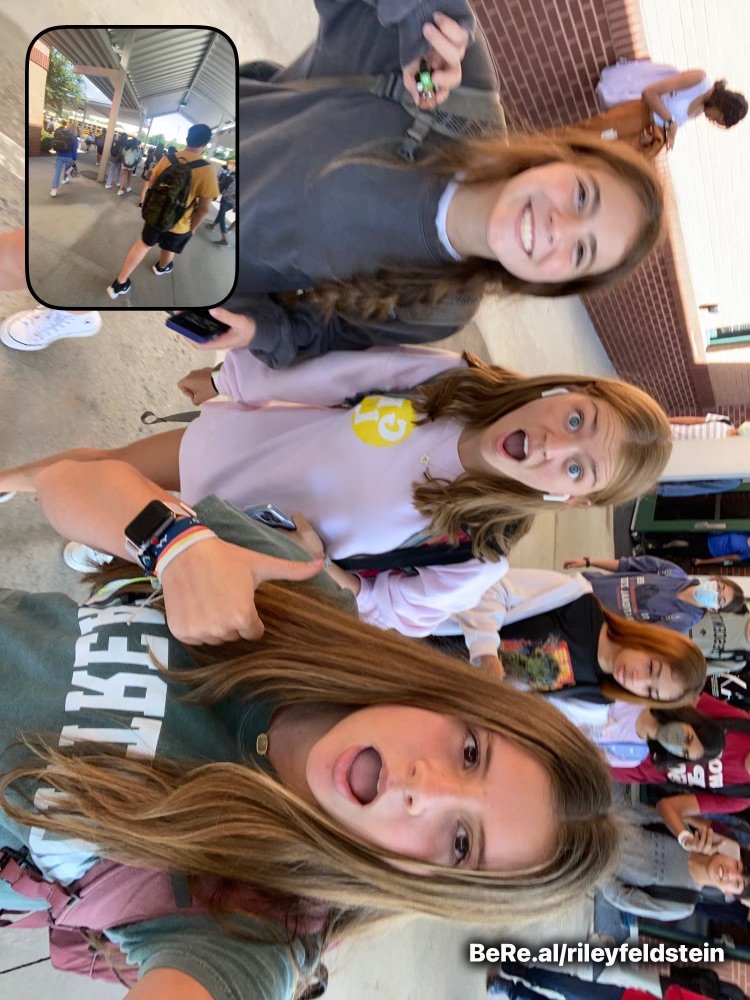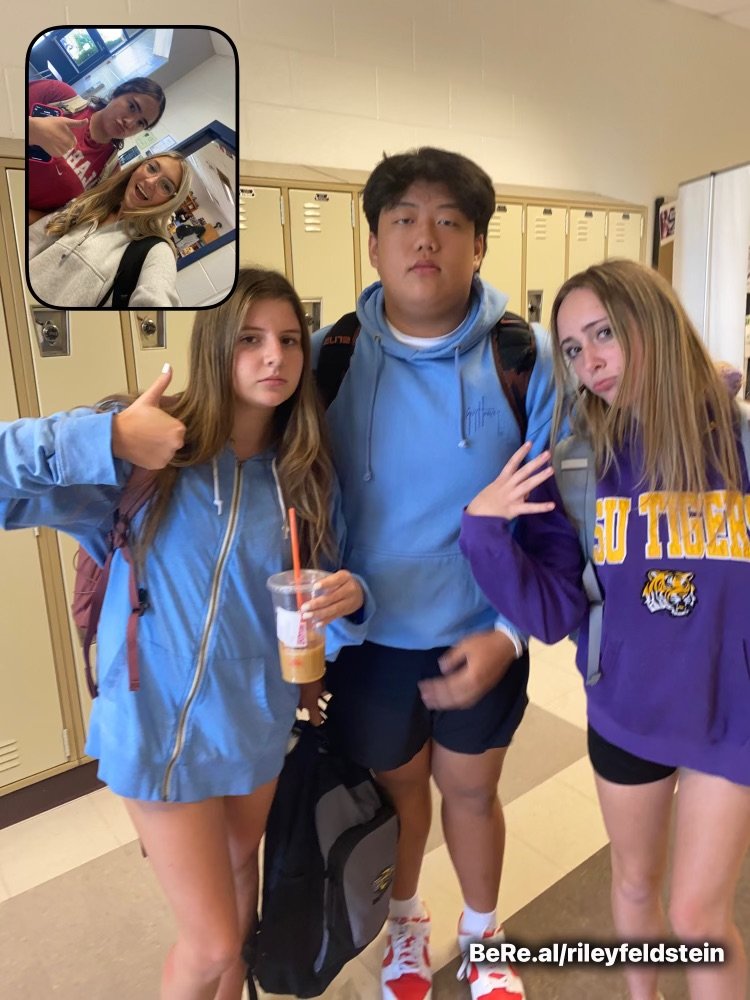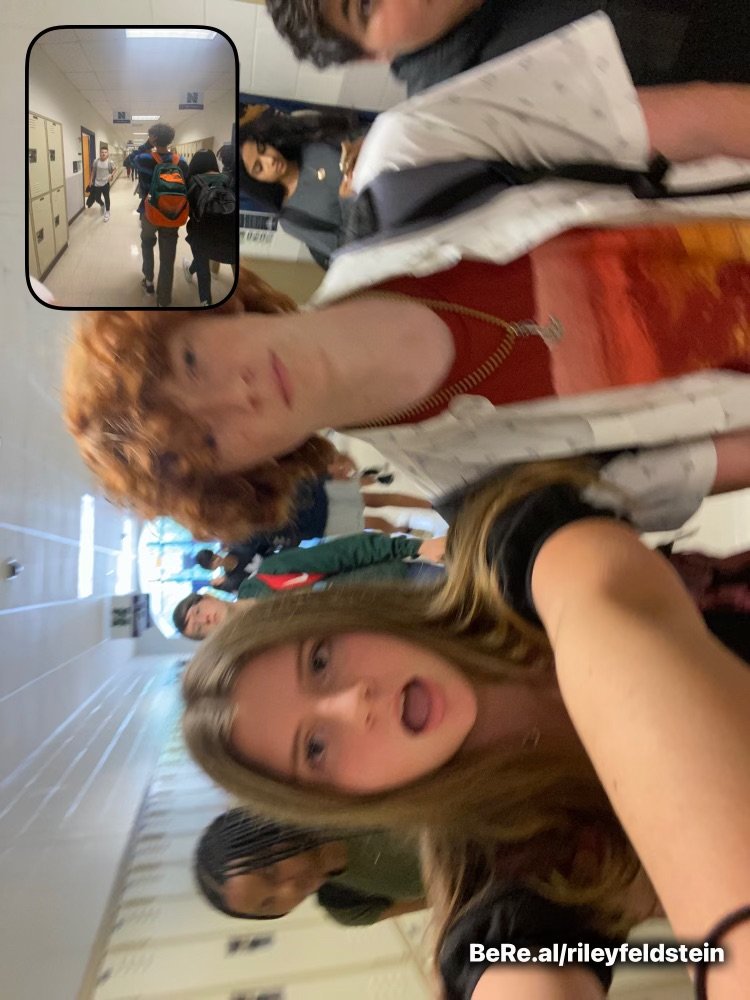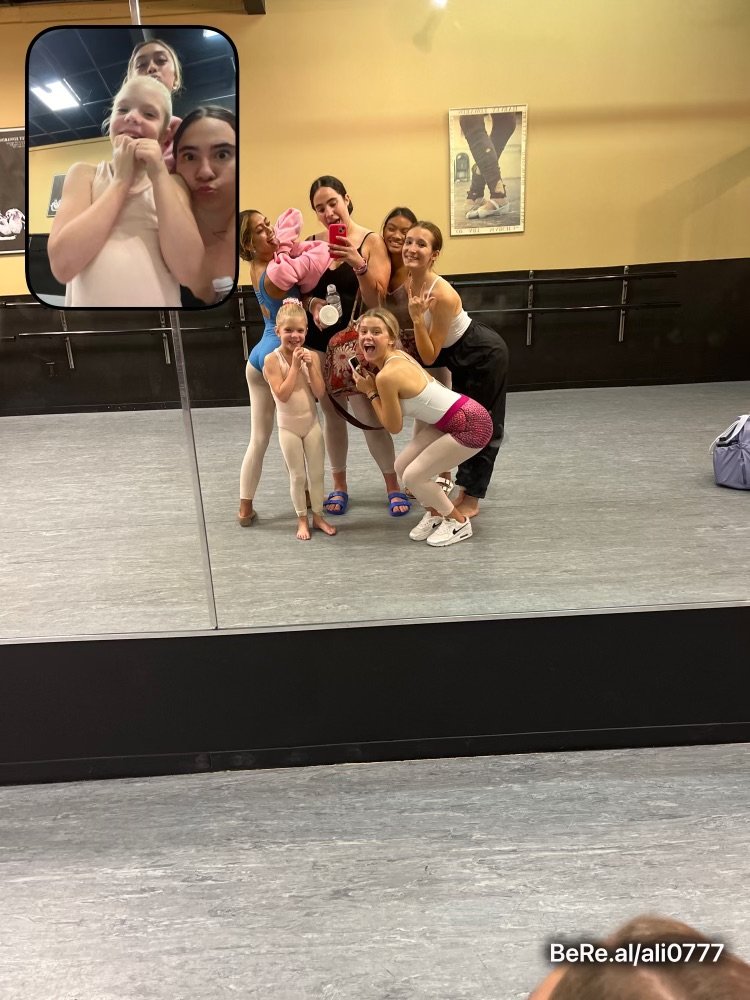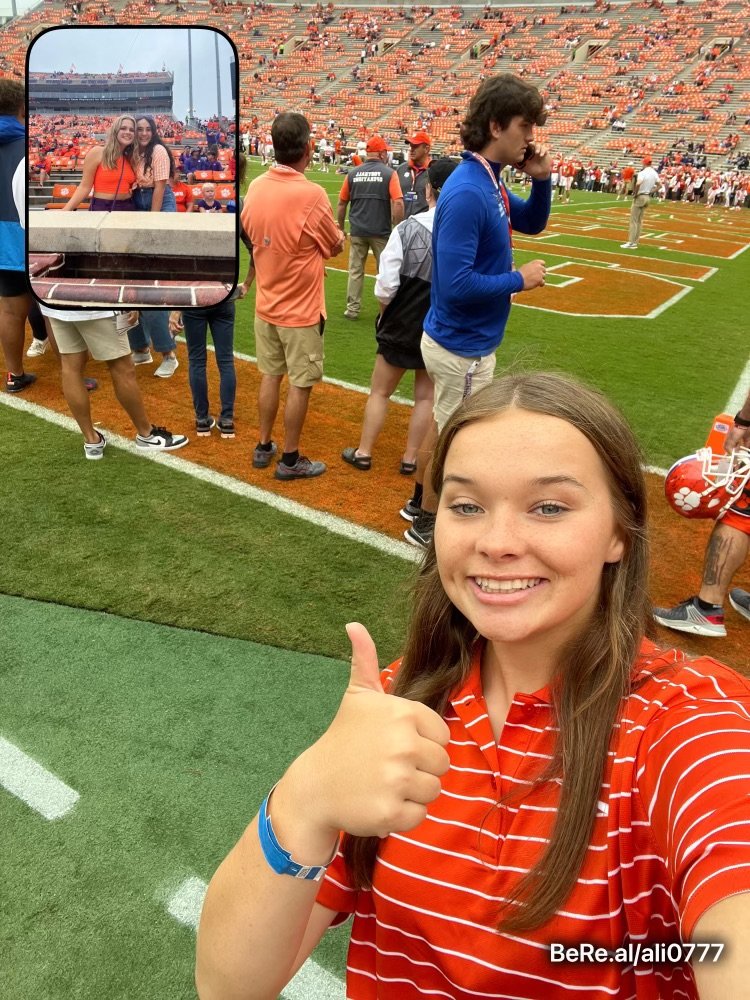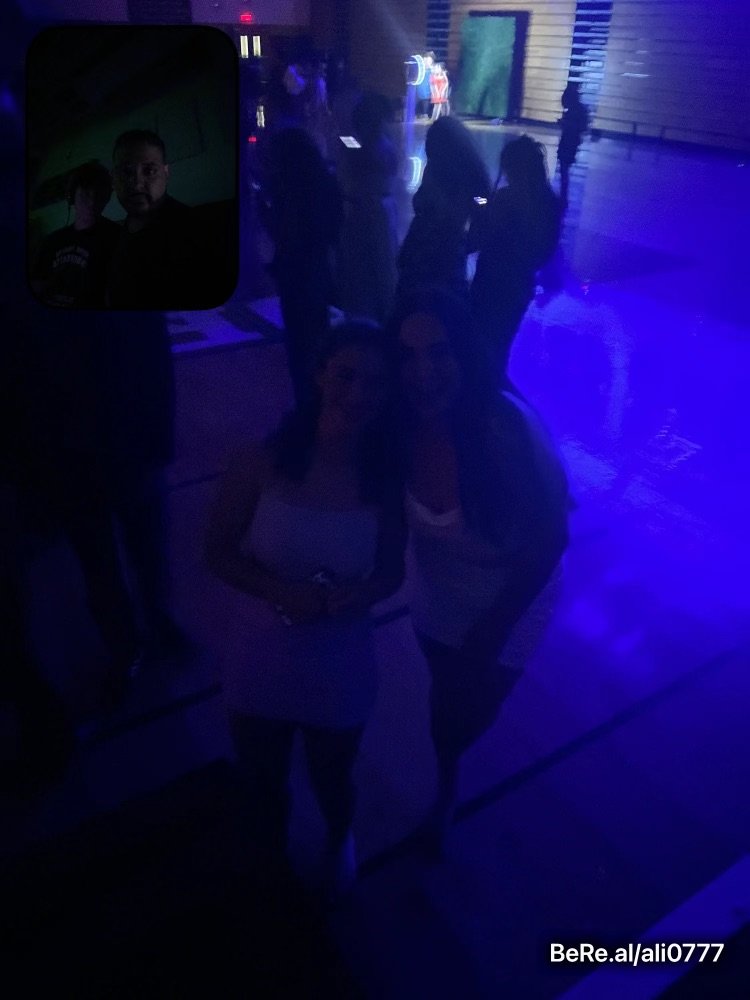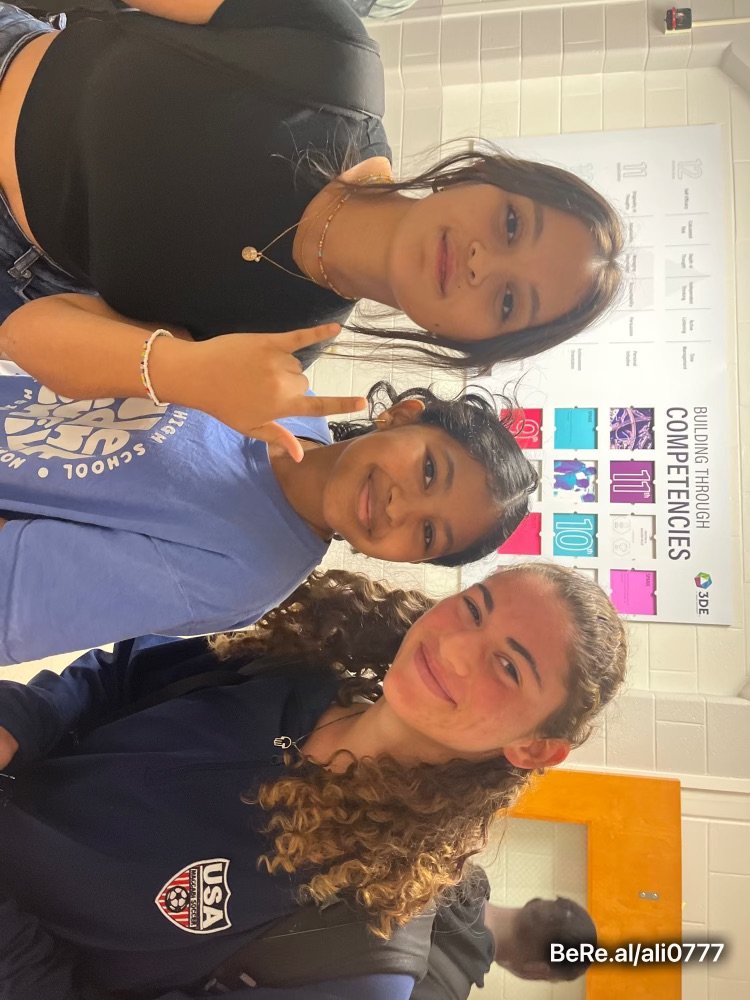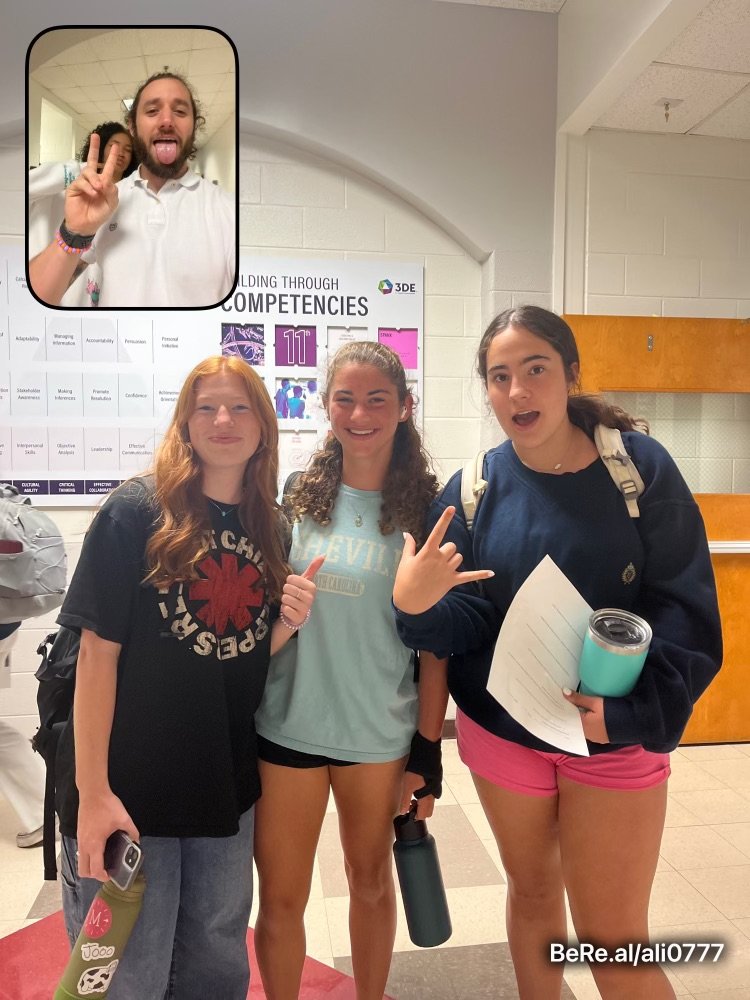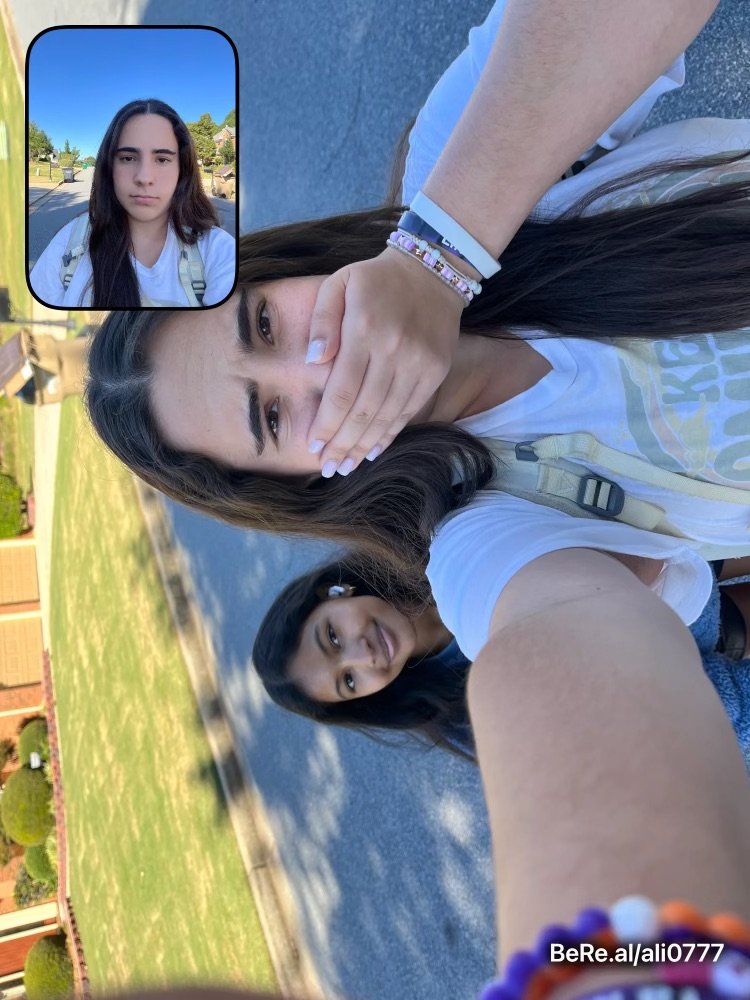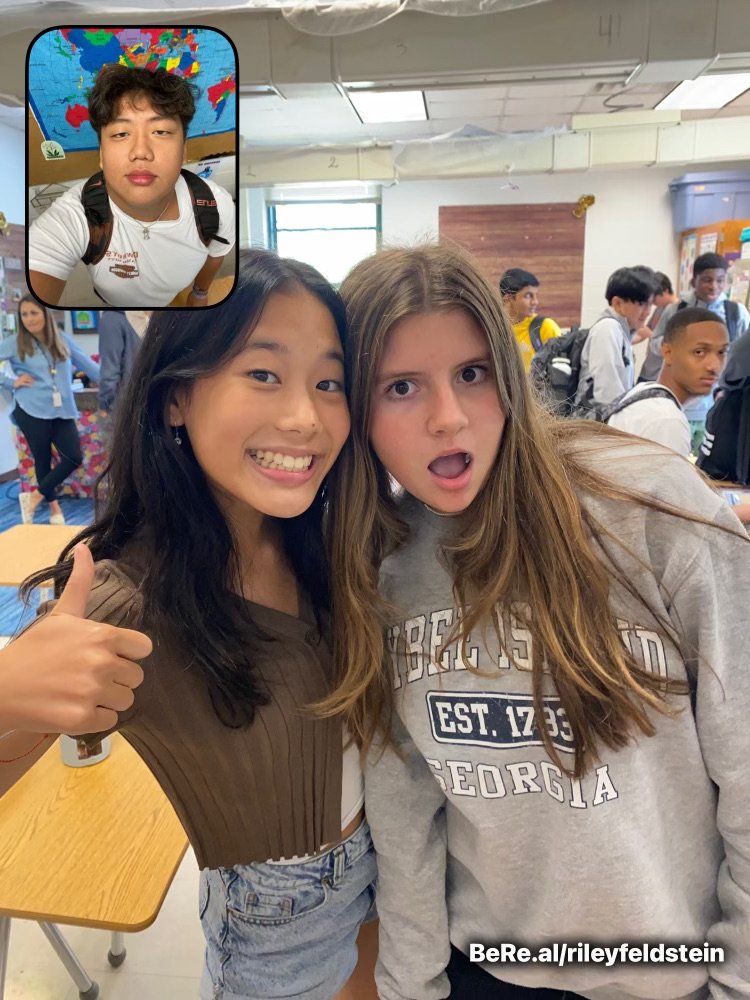Calling all students to “BeReal” on social media
The effects and pressures of social media on teenagersEowyn Miller, Staff Writer & Ria Dubey, Opinions Editor
A large majority of criticism of social media focuses on the negative effects it has on teens and their perception of reality. Instagram, Snapchat, and Twitter are currently the most popular social media platforms among teens, and a new app, BeReal is on its way to joining them. As BeReal becomes increasingly popular, many are beginning to question the impact social media has on youths’ perceptions of reality.
BeReal’s goal is to have its users show their most authentic selves on social media. Once a day, the app sends out a notification informing its users to take a photo of themselves within the next two minutes. When opening the app to take a photo, the app only shows one side of the camera before taking a photo in both directions. If someone misses the notification to take the photo or wishes to retake their first photo after seeing the results, they can. The only consequence of this is that those who are set up to view your account can see exactly how late the user was from when they received the notification to take their photo and how many tries it takes for them to “be real.” The question BeReal raises is whether it encourages authenticity or instead pressures users into conforming to a new social media norm.
“I mean it’s just people taking photos in the moment, so I think that sounds like it could definitely make people be more realistic than what is there today,” sophomore Anna Caragher said.
Caragher further mentions the advantages to having social media that she has seen among her friends, describing how social media serves as a medium for them to express themselves. Noah Dakouche, a sophomore with a large social media following, expands on this idea, discussing how he explored his identity thanks to his mutuals from around the world through apps like TikTok.
“I've seen it affect people positively when you meet new people,” Dakouche said. “And those relationships can be really fulfilling and lasting. That is the case for me since I found my identity online and figured out what even being trans was online.”
This idea of positivity stemming from social media is prevalent even in the mindset of adults such as Media Specialist Darryl Paul.
“[Social Media] can be really empowering because you can control the presentation of yourself in a way that you can’t day to day,” Paul said.
On the other hand, Northview sophomore Alexandra Gray believes that the effects of social media can also depend on the actions of its users.
“I think it's different for every person because there are some people that wait until they're doing something interesting and they think people would like to see, but there are definitely people who just do it when it goes off,” Gray said.
Paul agrees with this sentiment, stating that it depends on how “real” the person is willing to be when the notification goes off. He mentions that some people may wait for a better background to take their daily photo so that instead of revealing their authentic selves, they are presenting artificial versions of themselves.
“It's a different take on social media,” Paul said. “Innovation is almost always a good thing, but I can see some potential for awkward situations.”
However, to others, this is merely another addition to the ever-present pressures of social media. As teens feel the need to be interesting more than ever before, BeReal is an added stress on them.
“I found [BeReal] to be almost a competition,” Dakouche said. “Everyone would post when they were out doing interesting things, and when I, for example, posted a BeReal of me, say, holding a can of soup, I got a lot of backlash for that asking why I don’t post more interesting things.”
There is also a rising concern about the possible effects on students’ mental health and security as platforms and pressures grow with time.
“I think there’s probably the most potential for negative mental health effects,” Paul said. “There’s the pressure to perform and look pretty, causing depression and anxiety. It always starts fine, but in the end, it becomes a job.”
This is true for all forms of social media, not just BeReal. Dakouche expands on his experiences as an avid user of several apps such as TikTok, Instagram, and Snapchat throughout the years. He mentions falling behind in school as he felt further drawn into the thralls of social media.
“As someone with a large following, I personally do not like social media,” Dakouche said. “Because I found myself every day, thinking, I should post a TikTok about this, or I'm wearing a cute outfit let me publish a TikTok real quick. Instead of doing more important things like homework, which led to me getting bad grades in my middle school years because that's when my social media presence spiked.”
Northview Principal Martin Neuhaus employs a similar approach to this new app. He is skeptical about social media as a whole because it can often affect other aspects of students’ lives negatively. Neuhaus further explains that social media is an addiction, and similar to any other addiction, it is harmful to teens and their developing brains.
“The greatest gift you have is to realize you're in charge of your life, your actions and your attitude— that's up to you,” Neuhaus said. “And when someone else is telling you or influencing you, you've lost control. You've got one life. These are your actions, your attitude, so if you're being told what to do, by social media or TikTok trends, that's definitely not good.”


